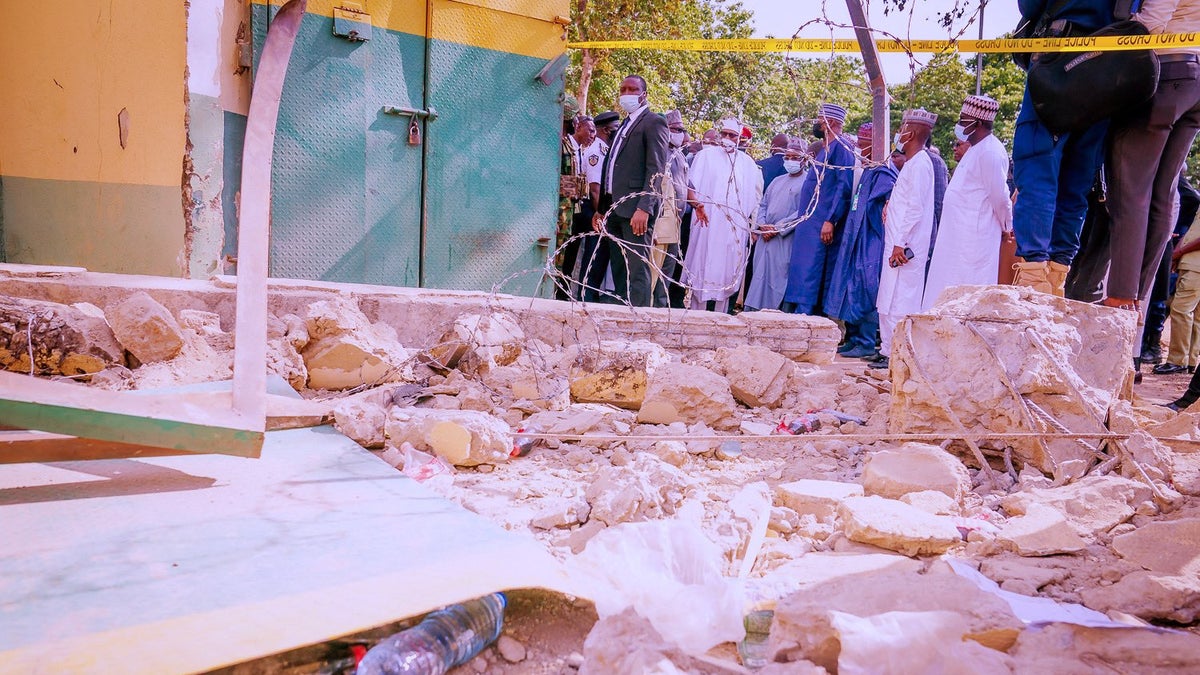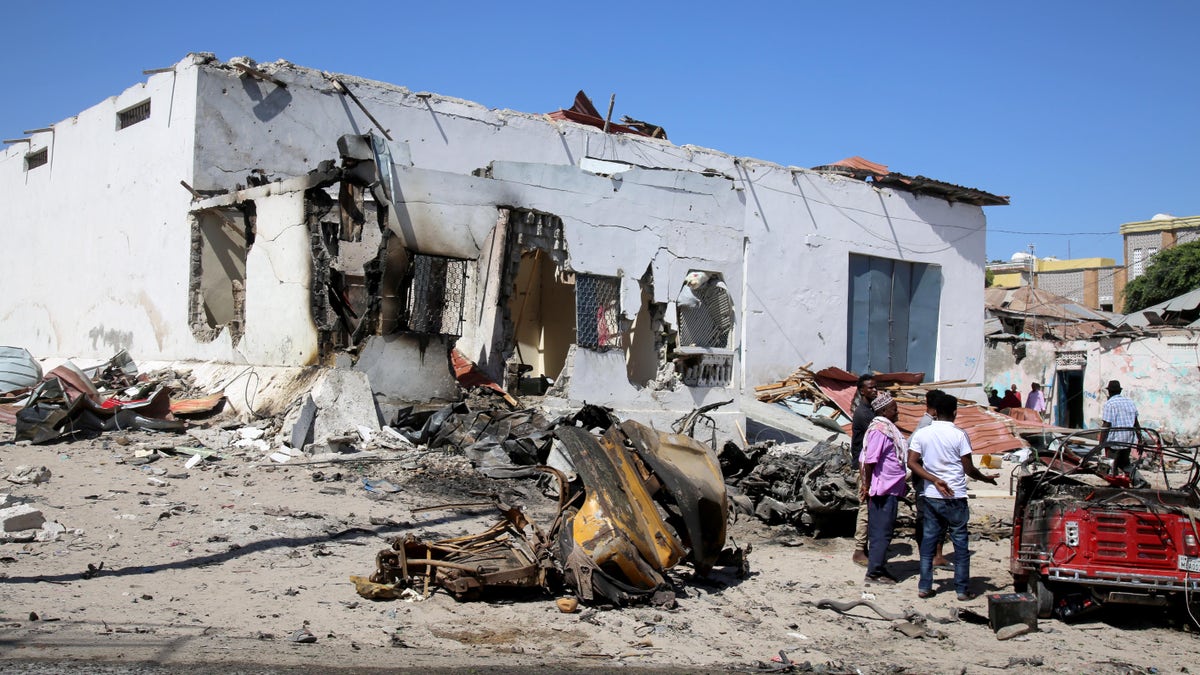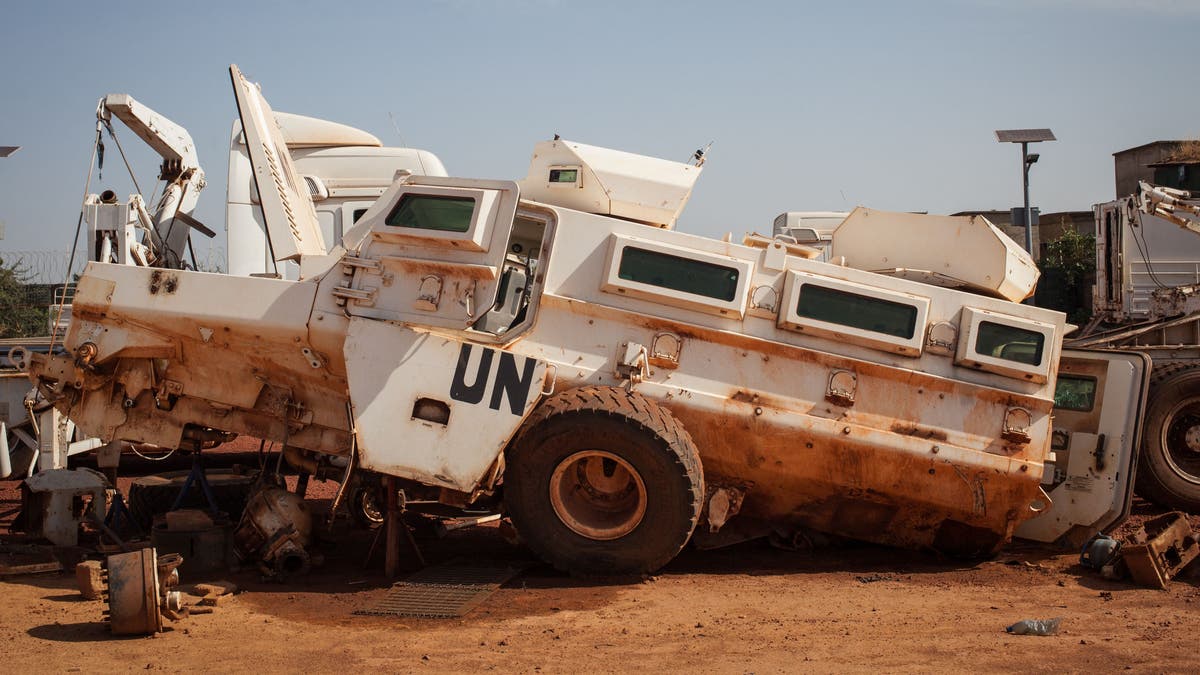U.S. ambassador on terrorism in West Africa and the Sahel
US ambassador to the UN Richard Mills delivers a speech on West Africa and the Sahel at a recent UN Security Council meeting. He said there is still an opportunity to defeat terrorism in the region.
JOHANNESBURG, South Africa – Africa has been beset by jihadi violence, and it is something the U.S. will need to pay close attention to, observers warn.
On Sunday, a U.S. airstrike killed two al-Shabab terrorists in response to an attack carried out against U.S. partner forces in Somalia.
"The Islamic Jihad in Africa is real," claims Jasmine Opperman, South Africa based security consultant specializing in extremism and political violence, who believes Africa has taken over from the Middle East as the jihadis main area of operations.
"It definitely is the case", Opperman told Fox News Digital. "If one looks at the history of Africa, I'm going into Mali and the West Africa region, Somalia, the East Africa region, the Democratic Republic of the Congo and Mozambique, we are seeing that al-Qaeda has always had an entrenched presence in Africa. We are seeing an environment conducive for these international terror groups to find themselves, embed themselves and take the lead in extremist activities in all of these regions."

Nigerian President Muhammadu Buhari visits the prison where 600 prisoners escaped after an attack, in Abuja, Nigeria July 06, 2022. (Photo by Nigerian Presidency/Anadolu Agency via Getty Images))
Earlier this month, Nigeria's most secure prison was overrun by jihadis, even though the Nigerian Minister of the Interior Rauf Aregbesola said Kuje Prison is a world-class facility and "the most fortified in the country".
NIGERIAN CHURCH ATTACK CASUALTIES REVISED DOWN TO 22 KILLED, 50 INJURED
However, a platoon of the Nigerian army "with sophisticated weapons" were no match when an Islamist jihadi movement decided to spring over 60 terrorists jailed there. The jihadis came to the jail located in the nation’s capital, Abuja, in three waves, attacking the facility for over two hours with over 300 militants, some firing rocket propelled grenades, one unit dedicated to blowing open the prison’s walls and another group taking up defensive positions in surrounding streets to prevent the army from sending in reinforcements.
Christopher Holton, director of the State Outreach Center for Security Policy, told Fox News Digital that the U.S. needs to pay close attention to what is happening in Africa.
"Historically, when jihadists are allowed a safe haven, they simply use it as a base of operations to spread jihad elsewhere. The example of al-Qaeda launching the September 11 attacks from Afghanistan and the 1998 East Africa embassy bombings from Sudan are instructive."
Holton concluded that, "Two of the most deadly jihadist groups in the world operate exclusively in Africa: Boko Haram and al-Shabab."

MOGADISHU, SOMALIA: A view of damage at the scene after a suicide car blast targeted a security convoy in Mogadishu, Somalia on January 12, 2022. At least 10 people including five security officers were killed in the attack in Mogadishu has been claimed by al-Shabab, an al-Qaeda-linked terrorist group. ((Photo by Sadak Mohamed/Anadolu Agency via Getty Images))
In East Africa, the jihadi group al-Shabab, created 15 years ago in an already turbulent Somalia, have become poster boys of the jihad revolution with their flamboyant attacks on a U.S. air base in Mandla Bay, Kenya; the overrunning of a Kenyan army camp, killing 200; an attack on a Kenyan college campus which killed 148 people; the deadly siege of the Westgate Shopping Mall in Nairobi, Kenya, where at least 67 died; and enormous World War II - size bombings in Mogadishu, Somalia.
BIDEN APPROVES SENDING US SPECIAL OPERATIONS TROOPS TO SOMALIA
In May, President Biden reversed President Trump’s decision to pull U.S. troops out of Somalia and put back an estimated 500, after there was a spike in al-Shabab activities.
"The decision to reintroduce a persistent presence was made to maximize the safety and effectiveness of our forces and enable them to provide more efficient support to our partners," A U.S. National Security spokesperson stated. Special Forces personnel are claimed to be mostly advisers. However, it is known the U.S. does deploy drones to target jihadi leaders in-country, although whether the drones are flown long-range from the U.S. base in Djibouti is not known.
Opperman believes the huge growth of Islamist militancy across the continent is driven by common factors - weak governance, and often rural communities who have been neglected by governments and have lost trust in the system that should be protecting them.
The Boko Haram jihadi group jumped into the international spotlight when their members kidnapped 276 schoolgirls in Chibok, North-Eastern Nigeria in 2014.
Over 2 million people have fled their homes to escape Boko Haram in Nigeria alone, according to the U.N. Nearly 800,000 more have been displaced in the neighboring countries of Cameroon, Chad and Niger. Those captured have been forced to convert to Islam, and the women often turned into sex slaves.
However, for this jihadi group, things are changing. "Boko Haram is not the same as we have seen a few years back", says Opperman. "Many of the fighters crossed over to the Islamic State West Africa province, (ISWAP) and we are seeing the ISWAP now even reaching into the Abuja area, the capital of Nigeria. It's this geographical expansion as far as Abuja that remains a concern."
As soon as Nigerian authorities catch jihadi militants, a high proportion of them are put back into operation by their colleagues. There have been 15 assisted jailbreaks in the last seven years, helping 7,000 inmates to escape.
A little further north in Niger, the new French Foreign Minister Catherine Colonna and Defence Minister Sebastien Lecornu reportedly signed a new agreement that will see French troops withdrawing from Mali with 1,000 of them setting up base in Niger equipped with fighter jets, drones and helicopters. Up to 400 more troops will engage in Special Operations on the borders of Burkina Faso and Mali, and an additional 700 to 1,000 personnel will be based in Chad. All of them, in this Sahel Region, will continue facing off both Islamic State and Al Qaeda-affiliated jihadis who have made this the most dangerous peacekeeping destination in the world.
Paris has had its troops in Mali, a former French colony, for nine years. However, their redeployment comes in the wake of a near doubling in violence in the Sahel in 2021, from 1,180 to 2,005 incidents. ReliefWeb states this was the most significant change in any of the theaters of Islamist violence in Africa this past year.
SENATORS URGE USAID TO HURRY UP AND DISTRIBUTE CONGRESSIONALLY APPROVED AID AMID GLOBAL FOOD CRISIS
More than 2.7 million people have been forced to flee their homes in the Sahel, and at least 13.4 million are in dire need of humanitarian assistance, according to the U.N.

A United Nations armored vehicle that had been hit by an improvised explosive device is pictured while parked in the United Nations Mission in Mali camp of Sévaré-Mopti on November 5, 2021. - Improvised explosive devices hidden on the way of Malian and foreign soldiers operating in Mali are one of the most frequent attacks by the jihadi armed groups operating in Mali, either linked to Islamic State organization or al-Qaïda. ((Photo by AMAURY HAUCHARD / AFP) (Photo by AMAURY HAUCHARD/AFP via Getty Images))
With reports of Russian mercenaries now operating in Mali, Opperman is concerned that the U.S., already present with drones and special forces in the area, will be sucked into a confrontation here with Moscow: "We are seeing currently the tensions between France and Russia," says Opperman. "France on the way out and Russia trying to move in. And this leaves a question: if we are going to see some United States expansion within the region."
CLICK HERE TO GET THE FOX NEWS APP
In Mozambique, jihadis are on a roll, where some 4,000 people have been killed, and more than 800,000 forced from their homes - and they are pushing South. The group, also known as al-Shabab, has warned South Africa to get its troops out of Mozambique, or they will attack this neighboring country, less than 1,500 miles from the conflict. Jasmine Opperman believes it is a question of when rather than if the jihadis will attack Johannesburg:
"No country border is a stumbling block for terrorists," concludes Opperman: "The global expansion, the extremist jihadist ideology, demands of them to ever push the borders beyond what they believe will at the end of the day lead to a new world order and a new caliphate."








































